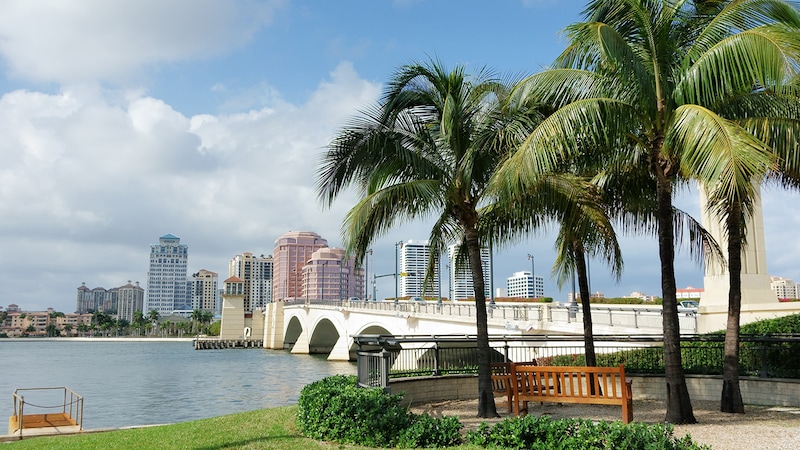A guide to using credit cards in France

Quick insights
- Credit cards are widely accepted in France, but you may need euros for smaller purchases.
- Some credit cards charge foreign transaction fees.
- To avoid these fees, you might consider applying for a credit card that doesn’t charge them.
Croissants, boutique perfumes, bottles of Bordeaux, designer handbags—these are just a few of the items you might want to buy when visiting France. The country is known for its luxury shopping, elevated cuisine and exquisite craftmanship. To enjoy all it has to offer, you’ll need an accepted payment method.
Credit cards are accepted by most businesses in France. However, keep in mind that using credit cards abroad can result in several different fees. Having euros on hand allows you to make certain purchases, such as buying a €3 eclair when the boulangerie requires a €5 minimum purchase for credit cards.
In this article, we’ll cover some things to know about using credit cards in France, including situations where cash might be necessary and how to limit fees.
Using credit cards in France
Credit cards and other electronic payment methods are generally accepted throughout France, especially in major cities and popular tourist destinations.
Visa and Mastercard are usually accepted by merchants, while some may accept Discover and American Express. Many businesses also accept contactless payments via digital wallets. Although credit cards are commonly used, it may be a good idea to bring multiple forms of payment, including euros, to make purchases in France.
Street vendors often only accept cash, and as in the U.S., some businesses have a minimum purchase requirement for credit card transactions. Converting currency with your bank or credit union before your trip usually provides a competitive exchange rate.
You might wonder if you need to notify your bank before using your credit card in France. Credit card issuers, including Chase, no longer require you to provide a travel notice before an international trip, thanks to advancements in fraud detection technology.
Potential credit card fees while traveling in France
If you’ve ever used a credit card abroad, you might have encountered fees that can quickly add up and potentially disrupt your vacation budget. The good news is that there may be ways to avoid or limit them. Here are some things to know about potential fees when using credit cards in France:
Foreign transaction fees
Foreign transactions fees are charges you may incur when using certain credit cards abroad, typically ranging from 1% and 3% of the transaction amount. The fees help banks cover the cost of processing international transactions and limit risks associated with fluctuating exchange rates.
You may be able to avoid foreign transaction fees by using certain travel rewards credit cards that don’t charge these fees and offer travel-friendly rewards and benefits.
Currency conversion fees
When you use a credit or debit card or withdraw euros from an ATM in France, your bank might charge a currency conversion fee—usually around 1% to 3%. Some banks may include this fee as part of the foreign transaction fee.
Dynamic Currency Conversion (DCC) fees
Some merchants, especially in touristy areas, offer the option to pay in your home currency when using a credit card. This convenience generally comes with fees and possibly an unfavorable exchange rate.
You can typically avoid these fees by selecting the right option at the payment terminal. Choosing to pay in euros rather than U.S. dollars means you won’t be charged DCC fees. If you’re not given this option at the payment terminal, you can alert the merchant that you’d like to pay in euros.
While paying in euros helps you avoid DCC fees, you’ll still be subject to the fees and exchange rates associated with your credit card. However, your credit card’s terms are generally more competitive than those offered by DCC services.
Pros and cons of using credit cards in France
Whether you’re planning a shopping spree on the Champs- Élysées in Paris or a tour of Burgundy’s vineyards, a credit card can be a convenient payment option. However, it’s not without its drawbacks. Here are some pros and cons of using a credit card in France:
Pros
- Credit cards are accepted by most businesses in France.
- Fraud protection.
- If you have a travel rewards credit card, you can usually earn points on trip expenses like flights, hotels and dining out.
- Some credit cards provide travel protection benefits, such as coverage for lost luggage or trip cancellations.
- Credit card statements and digital banking tools can help you track your expenses.
- Credit cards are lightweight and slim, easily fitting in your wallet.
Cons
- You’ll likely still need euros for certain purchases, such as tipping hotel staff or buying a ham and cheese crêpe from a street vendor.
- Budgeting can be complicated due to daily fluctuations in the exchange rates offered by credit cards.
- Without careful budgeting and tracking, there’s a risk of overspending with credit cards.
- Some credit cards may charge foreign transaction fees for purchases made in France.
- Choosing to pay in U.S. dollars may result in DCC fees from merchants.
- Monitoring your account for unauthorized charges during your vacation may be an unwelcome chore.
In summary
Credit cards and other electronic payment methods are accepted by many businesses in France. However, you could be charged foreign transaction, currency conversion and DCC fees. Applying for a credit card with no foreign transaction fees or choosing to pay in euros at the credit card payment terminal are a few ways to help limit these fees.
For some purchases, you may need to pay in euros. Exchanging currency with your bank or credit union before you travel typically provides a competitive rate.



